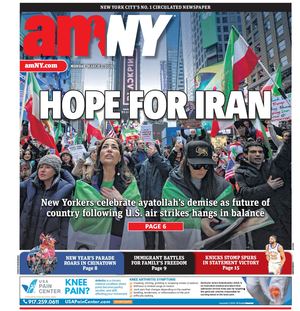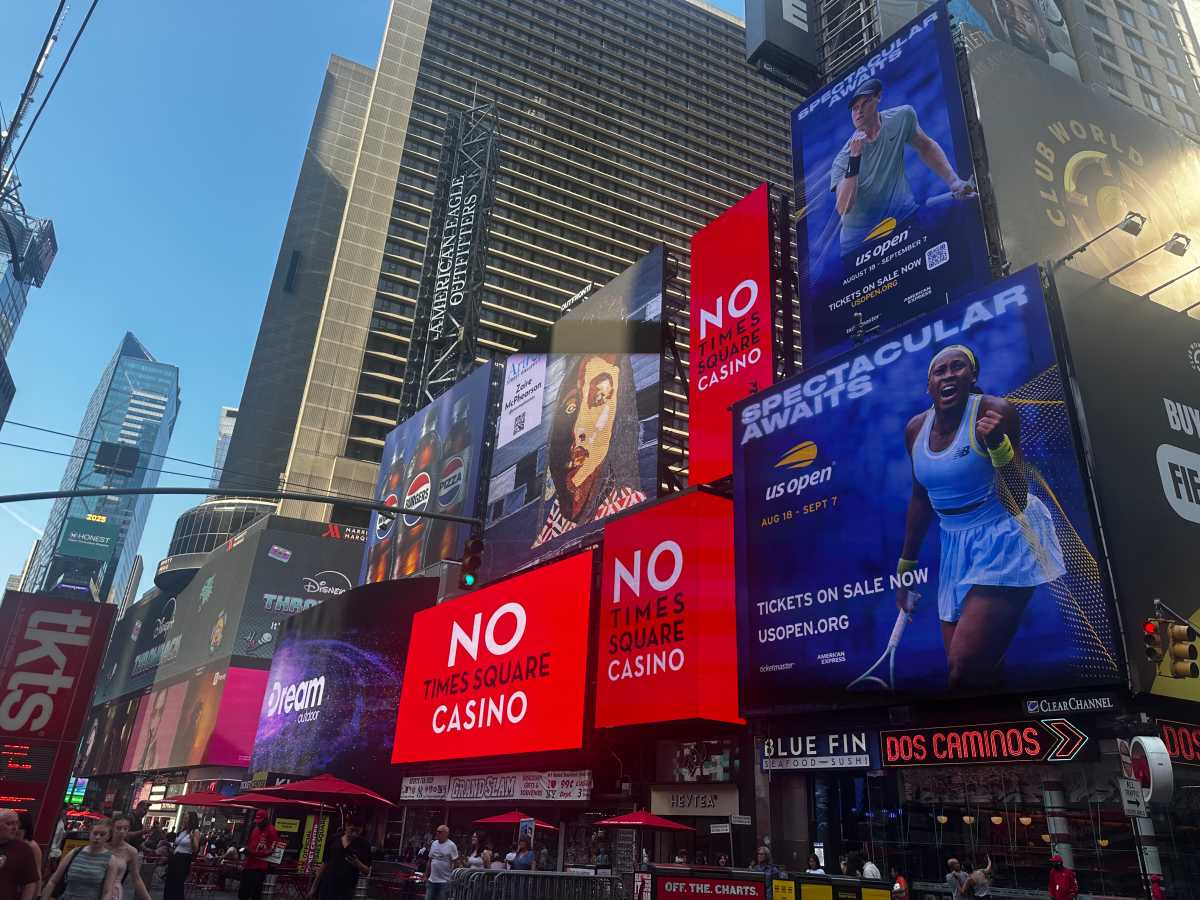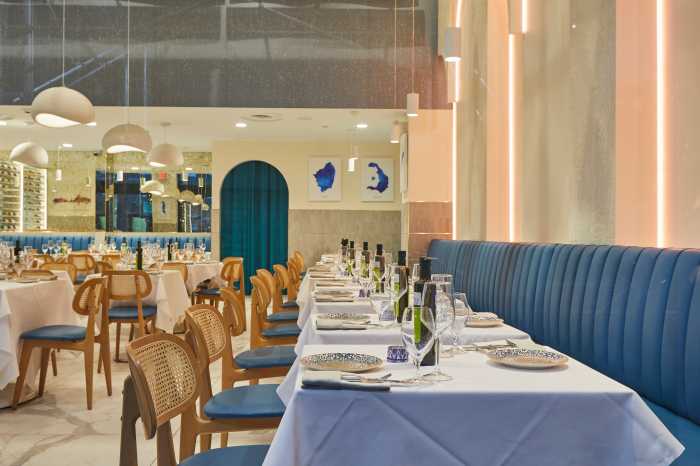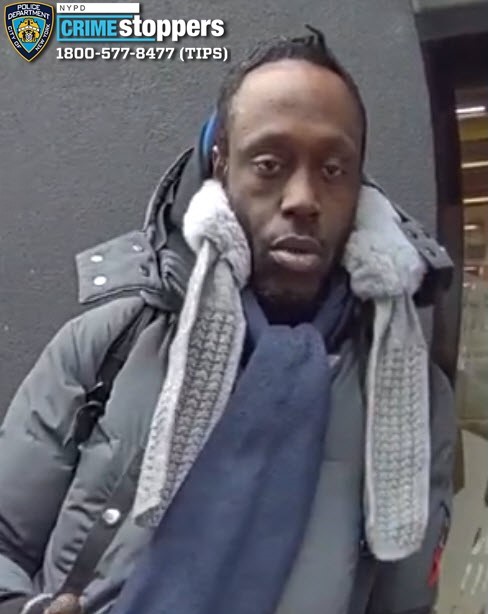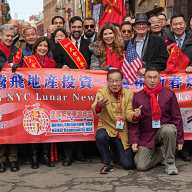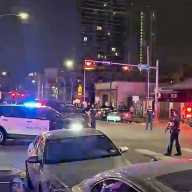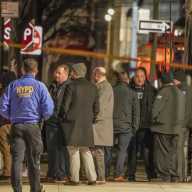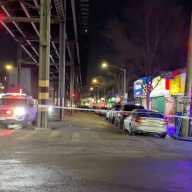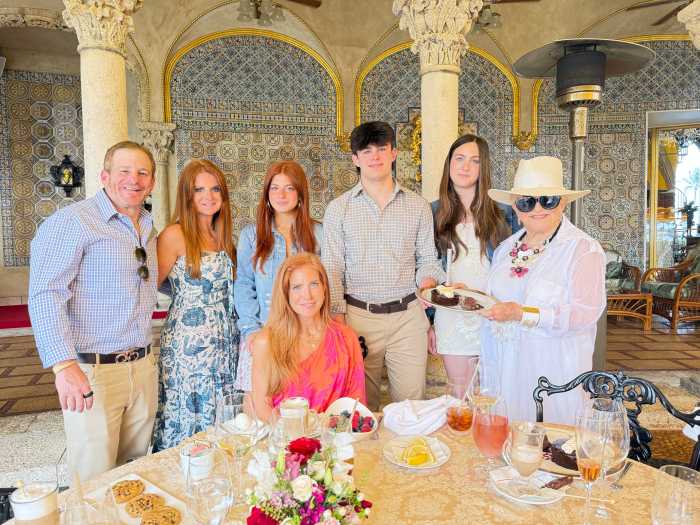The first of two public hearings on a Times Square casino proposal on Wednesday saw passionate pleas from groups and individuals backing and fighting the plan.
Supporters argued that the casino bid would provide construction and service jobs to the neighborhood while improving the community through private investment. Opponents, however, alleged the casino would divert revenue from Broadway and make the area unlivable.
Caesars Palace Times Square is part of a joint bid between entertainment companies SL Green, Caesars Entertainment and Roc Nation that would bring the proposed casino and entertainment complex to the heart of Times Square. The all-day Aug. 13 hearing was the first of two that the Community Advisory Committee (CAC), a six-member body appointed by city and state officials, will hold on the proposal before voting for or against it.
Marc Holliday, the CEO of SL Green, said the casino will create a “halo effect,” boosting demand for hotels, restaurants and retail across Times Square.
“Times Square can be so much better than it is today — it can become a place where New Yorkers want to spend time, and a place that shows off the best of our city to visitors from around the world,” Holliday said at the hearing. “To transform a neighborhood, you need a spark. This project is that spark to make this happen — in a way that’s only possible in Times Square.”
But those fighting the proposal —including a group of theater organizations, local nonprofits and political groups — rallied before the hearing Wednesday morning and later argued during the session that Times Square does not need the casino to boost its economy.
Caesars Palace Times Square is one of eight proposals competing for three downstate licenses. If the proposal passes a two-thirds majority vote of the CAC, it will advance to the Gaming Facility Location Board for review.
Supporting the casino
Union workers from across the city testified that the casino is a positive sign of progress, saying it would create union jobs for construction and maintenance.
“It will generate brand-new jobs that simply will not exist without this license. These new opportunities offer New Yorkers a real chance to join the middle class,” said Anthony Fotiadis, president and business manager of SMART Local 137, which represents sheet metal, air, rail and transportation workers.
Fotiadis said the union had been meeting with Caesars Palace Times Square for over four years, which convinced him the developers would support union labor.
Oona Adams, director of organizing for Laborers Local 79, said the casino will improve safety and security in the neighborhood.
“I am excited and proud to support this project not just because of the wealth of union jobs and careers it’s going to be facilitating, but also because it’s going to be a vital and much-needed improvement for our city and for Times Square,” Adams said at the hearing.
Against the casino
Caesars Palace Times Square has faced intense opposition from Broadway theaters, local businesses and community organizations that argue the casino would decimate businesses and culture while potentially increasing sex crime and human trafficking.
Jason Laks, president of the Broadway League, the national trade association for Broadway, said the Broadway industry supports over 100,000 jobs that the casino would put at risk.
“These construction jobs will go wherever the casinos are built,” Laks said at the hearing. “This location is the only one that threatens 100,000 jobs, so many of which are good union positions. This casino remains an existential threat to Broadway and our entire neighborhood.”
Leah Oken, the business representative for the theatrical wardrobe Local 764 of the IATSE, said that while she respects her “union siblings,” a Times Square casino would destroy Broadway.
“We believe this is the wrong location for a casino,” Oken said at the hearing. “Times Square is home to Broadway, something that makes New York City what it is, and has been there for hundreds of years. It is vital that these jobs remain protected for generations of audiences and generations of workers.”
The development companies have also pledged millions of dollars in community and public investment in a bid to invite community support, and they contend that the casino would reduce violent crime and thefts in the area.
The appearance of safety may mask deeper criminality, said Nadia Swanson, the director of advocacy and global programs at The Ali Forney Center, which houses at-risk youth. Swanson said casinos are “known businesses” for trafficking and violence where youth can access drugs and alcohol.
“This casino would cause tremendous harm to the unhoused youth who rely on services in this neighborhood and would be targets for those that seek to harm,” Swanson said at the hearing.
A May 2024 poll found that 71% of Midtown residents opposed the casino, though that was before many of the investment pledges.
A similar proposal for a casino in Hudson Yards was scrapped in May after the local City Councilmember, Erik Bottcher, facing community pushback, worked to craft a new plan with developers to build more housing and office space rather than the casino.
Bottcher — whose chief of staff, Carl Wilson, is the chair of the CAC reviewing Caesars Palace — instead negotiated with developers to construct more housing.
Laks said the Broadway League and opponents of the casino are not “anti-labor,” noting that seven local theater unions testified against the proposal.
“If you approve this casino, it means fewer jobs and fewer people working on Broadway,” Laks said. “Please don’t sell out Broadway to the highest bidder.”
The CAC must vote on the proposal by Sept. 30.
